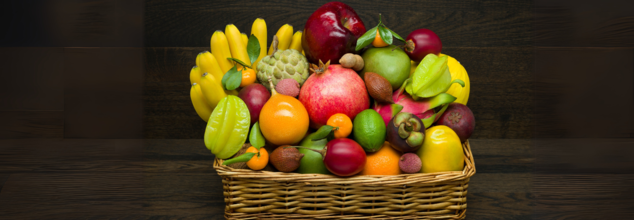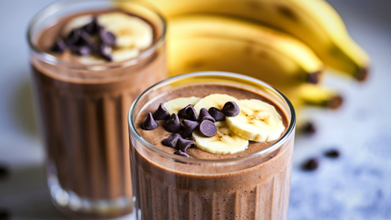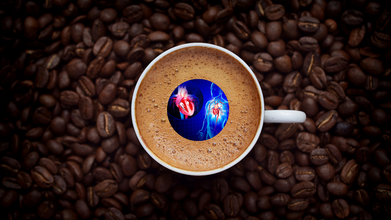- Health Conditions A-Z
- Health & Wellness
- Nutrition
- Fitness
- Health News
- Ayurveda
- Videos
- Medicine A-Z
- Parenting
The Sweet Trap: How Much Natural Sugar Should You Consume Daily?

Credits: Canva
Scrolling through health blogs over a green smoothie, questioning if the sugars in my fruit bowl were undermining my best efforts. The more I looked into sugar, the more bewildering it got: natural sugars, added sugars, fruit sugars, dairy sugars—how much is too much? And does it really matter if it's from an apple or a flavored yogurt?
That one simple question—"How much natural sugar should I be consuming daily?"—sparked my dive deep into what sugar actually does in our body, and more importantly, how to indulge in it without harm or guilt. If you've ever been confused about sugar's place in your health, or unsure if you're consuming too much of the "good stuff," this article will help break down the sweet truth—one realistic bite at a time.
With increasingly high levels of obesity, heart disease, and type 2 diabetes across the world, knowing how much natural sugar we're really supposed to be eating has never been more critical. While most are aware of "added sugars" found in sweets, sodas, and desserts, natural sugars—those that occur in fruits, veggies, and milk—can still leave us wondering: How much is too much? Are all natural sugars safe? Let's sort fact from fiction.
Natural Sugar vs Added Sugar
Natural sugars are present naturally within whole foods like fruits (fructose), vegetables, and milk products (lactose). Such foods are accompanied by fiber, vitamins, minerals, and antioxidants, which buffer the effect of sugar on the body.
Added sugars, though, are sugars that are added during preparation or processing—high fructose corn syrup in a soft drink or table sugar in baked goods. Even natural sweeteners such as honey, agave, or maple syrup are added sugars when added separately to food.
It's a matter of understanding this difference: the body processes both types of sugar the same way, but the nutritional context in which they're eaten makes a huge impact.
When it comes to added sugars, there is no debate. The World Health Organization (WHO) advises added sugars to make up fewer than 10% of your daily total energy intake, better yet aiming for 5% for optimal health gains—approximately 25 grams or 6 teaspoons a day for an adult eating 2,000 calories a day.
The American Heart Association (AHA) is even more stringent:
Women: Restrict to 100 calories/day of added sugars (approximately 25 grams or 6 teaspoons).
Men: Restrict to 150 calories/day (approximately 38 grams or 9 teaspoons).
But what about fruits, vegetables, and dairy with natural sugars? Interestingly, the USDA does not provide a daily limit for natural sugars. Instead, they provide use guidelines for the food sources—fruits, vegetables, and dairy—rather than the sugar itself.
Daily Recommendations Of Natural Sugar
Fruit
The USDA recommends 1.5 to 2 cups of fruit daily. While fruits are rich in vitamins and fiber, their sugar content can vary drastically.
Low-sugar fruits: Blueberries (14.7g/medium serving), pears (17.4g).
High-sugar options: 1 cup of orange juice (20.8g), ½ cup of raisins (42.9g).
Pro tip: Prioritize whole fruits over juices or dried fruits. The fiber in whole fruit slows sugar absorption, helping to avoid blood sugar spikes.
Vegetables
Women need 2 to 2.5 cups, and men need 2.5 to 3 cups daily.
Low-sugar vegetables: Broccoli (2.16g/cup cooked), spinach (0.26g/2 cups raw), carrots (6.07g/cup raw).
Beware: Tomato juice (8.65g/cup) adds up quickly.
Selecting more fibrous, low-sugar vegetables helps maintain better blood sugar balance and long-term health.
Milk and Dairy
Strive for 3 cups a day of milk and dairy products.
Dairy sugar:
- 2% milk (12.18g/cup)
- Fruit-flavored non-fat yogurt (46.55g/cup!)
- Mozzarella cheese (0.25g/1.5 oz)
- Processed American cheese (0.16g/2 oz)
Dairy also contains lactose, a naturally occurring sugar. But watch out for yogurts and other dairy products with added sugars—that's frequently camouflaged as "fruit on the bottom" or "vanilla-flavored."
Why Is Sugar a Health Concern?
Sugar is not necessarily evil—it is the body's main source of energy. But overconsumption, especially of added sugars, is a leading cause of chronic disease:
Weight gain: Foods with added sugars provide a lot of calories but little to no fullness.
Type 2 diabetes: Repeated sugar spikes damage insulin sensitivity.
Heart disease: Sugar increases triglycerides, blood pressure, and body-wide inflammation.
Tooth decay: Sugars feed bacteria that wear away enamel and create cavities.
Fatty liver disease: Fructose-rich diets (hello, soda) lead to fat accumulation in the liver.
Added sugar doesn't provide any nutrition. And worse, when eaten in amounts greater than your calorie requirement, it's stored as fat.
How Much Sugar Is Too Much?
You're taking in too much added sugar if:
- Over 10% of your total daily calories are from sugar.
- You're taking in more than 150 calories/day (men), or 100 calories/day (women) from sugar.
Fact: One 12-ounce soda packs a punch of as much as 39 grams of sugar—the amount to put you over daily limits in one drink.
Focus on Quality, Not Just Quantity
Sugar in whole foods such as fruits and vegetables isn't the problem—it's part of a nutrient-dense package. The problem is with the sneakily added sugars in everyday products such as ketchup, cereals, salad dressings, protein bars, and "health" drinks.
Instead of being afraid of all sugar, pay attention to where it's coming from. Read labels carefully. Get stuck in whole foods. Keep processed stuff in moderation. And don't go crazy about natural sugars in your morning pear or glass of milk. But keep an eye out for the syrup in your coffee or that "healthy" granola.
Natural sugars can absolutely be part of a balanced, healthy diet. The body doesn’t distinguish between a sugar cube and a fruit smoothie when it comes to blood glucose spikes. What makes all the difference is the nutritional context. If you’re concerned about your sugar intake—whether for weight, energy, or long-term health—consult a registered dietitian. A few mindful changes could help sweeten your health without falling into the sugar trap.
Looking For A Health Smoothie Recipe, Study Says You Should Skip The Banana

(Credit-Canva)
If you're making a smoothie for a health boost, especially for your brain and heart, you might want to leave out bananas. New research suggests that adding a banana to your drink can actually block your body from absorbing key healthy compounds.
Bananas have always been a big favorite for healthy drinks and desserts. You may have seen many healthy smoothie recipes like banana and coffee smoothie, or bananas and berries, being listed along with other healthy food recipes. While it does have many health benefits, how healthy it is with other nutrients involved has been questioned.
Researchers at the University of California-Davis found that bananas interfere with the absorption of powerful nutrients called flavanols. These compounds are fantastic for health, but if you blend them with a banana, you might not get the benefit you're looking for.
Should You Add Bananas In Health Smoothies?
The researchers found that bananas block how well we absorb flavanol. Flavanols are beneficial natural chemicals found in foods like berries, apples, grapes, and cocoa. When you eat enough of them regularly, they are known to help your memory, reduce swelling inside your body, which is called inflammation, and make your blood flow better.
So, why does the banana stop this? The culprit is a specific enzyme, a kind of protein, that is found in high amounts in bananas. It's called polyphenol oxidase (PPO). This is the same enzyme that makes a peeled banana or apple slice turn brown quickly. The researchers found that when PPO mixes with flavanols in the blender, it somehow stops your body from being able to use them. Lead researcher Javier Ottaviani said it was surprising to see how quickly even just one banana dropped the levels of flavanols your body could absorb.
Why Do Bananas Block Nutrients?
The scientists conducted a very clear experiment to figure this out. They had people drink three different things and then measured the flavanols in their bodies, by testing their blood and urine:
The Banana Test
A smoothie made with banana, which is high in the PPO enzyme.
The Berry Test
A smoothie made with mixed berries, which are low in the PPO enzyme.
The Control Test
A plain capsule of pure flavanols, just to see what 100% absorption looked like.
The results were impossible to ignore, the people who drank the banana smoothie had 84% less flavanols show up in their system compared to the people who took the pure flavanol capsule. This clearly proved that the banana was the reason the healthy compounds weren't getting absorbed.
How to Get Your Daily Flavanols?
If you're trying to meet the daily recommendation of flavanols, which is about 400 to 600 milligrams, to help your heart and overall health, you need to be smart about your smoothies.
The main takeaway is to skip the bananas if you're mixing it with high-flavanol foods like berries. If your smoothie already contains ingredients that are low in the PPO enzyme—like berries, pineapple, oranges, mango, or yogurt—then you are maximizing the amount of healthy flavanols your body will actually get. This finding opens the door for more research into how simple acts of cooking or preparing food, like how you brew tea (a major flavanol source), can change the nutrients you absorb.
Intermittent Fasting and Brain Health: Is There a Risk of Cognitive Decline?

Credits: Canva
Intermittent fasting is an eating plan that alternates between periods of eating and fasting on a set schedule. Studies show that intermittent fasting can help manage weight and even reduce the risk of certain diseases. But some people worry whether fasting could harm the brain or lead to cognitive decline.
Researchers addressed this concern in a paper published in Psychological Bulletin, reporting that short-term fasting of less than 24 hours does not appear to affect the mental performance of adults.
What Is Intermittent Fasting?
Intermittent fasting is an eating pattern that involves alternating between times when you don’t eat and times when you do, sometimes with calorie restrictions on specific days.
This practice dates back thousands of years and is woven into several cultural and religious traditions. Scientists began studying it for weight control in the early 1900s, and recent research has expanded to explore its broader health effects.
There are three widely followed types of intermittent fasting, as per Healthline:
- Time-restricted eating: You eat within a fixed time window and fast during the remaining hours. The 16/8 pattern is the most popular, where you eat during an 8-hour window and fast for 16 hours (including sleep). Other variations include 14/10 and 20/4.
- Alternate-day fasting: You rotate between normal eating days and fasting days, when you consume very few calories, around 500 on average. Some prefer spreading this limited intake across the day, while others eat one small meal.
- 5:2 fasting: Instead of alternating daily, this plan limits calorie intake to 500–800 calories on two chosen days each week, while the rest of the week follows a regular eating routine.
Intermittent Fasting and Brain Health: How Are They Related?
Only recently have scientists started exploring how intermittent fasting influences the brain. Early findings suggest it might offer certain cognitive benefits as we age and even help reduce symptoms of anxiety or depression.
“Many people assume fasting will make it hard to focus or perform well at work or school,” said David Moreau, PhD, a neuroscientist at the University of Auckland and senior author of the study. “Our findings show that for most healthy adults, short-term fasting doesn’t significantly impact mental sharpness.”
The research did note that children and teenagers experienced slight declines in attention and memory while fasting, emphasizing the need for a balanced breakfast before school. Adults, meanwhile, tended to perform a little worse later in the day while fasting, possibly because hunger can heighten natural dips in alertness due to circadian rhythm.
“Humans evolved with periods of limited food, so it makes sense our brains can function well without constant eating,” Dr. Moreau added. “Still, younger people seem more affected, which aligns with their higher energy demands.”
Intermittent Fasting Unlikely to Cause Cognitive Decline
According to recent studies, as per Healthline, intermittent fasting is unlikely to cause cognitive decline. Experts who reviewed the findings say it reinforces the safety and benefits of fasting. “The key takeaway is that fasting doesn’t harm mental performance,” said Dr. Mir Ali, bariatric surgeon and medical director at the MemorialCare Surgical Weight Loss Center, California.
The meta-analysis reviewed 63 studies across the world, including over 3,400 participants. Most individuals fasted between 8 and 24 hours, with a median duration of 12 hours.
Researchers concluded that fasting “neither enhances nor impairs mental performance.” They identified three main factors that influence cognitive function:
- Fasting duration
- Type and timing of the cognitive test
- Individual characteristics, such as age or body composition
They also noted that glycogen—the body’s stored form of glucose provides energy during normal eating. When glycogen levels fall during fasting, the body shifts to using ketones derived from fat as an alternate energy source.
How To Practise Intermittent Fasting?
Intermittent fasting is not suitable for everyone, particularly those with a history of eating disorders or women who are pregnant or breastfeeding. However, for most healthy adults, it offers flexibility in timing and approach.
During fasting hours, you can still drink water, black coffee, or unsweetened tea. Light exercise is also permitted. Healthline advises focusing on nutrient-rich meals during eating periods, staying hydrated, and maintaining good sleep habits.
For beginners, it’s best to start slowly, perhaps by fasting for 6 to 8 hours at first, then gradually extending to 8–10 hours, and eventually to the more balanced 12–14-hour fasting window.
Coffee For Heart: A Yes Or No? Here's What The Study Says

Credits: Canva
Coffee is almost everyone's favorite, whether it is to get you up and moving in the mornings, especially when the winter comes in, or to ensure your productivity is at best, or for when you hit the gym. And, if you are wondering to drink it or not with heart disease, the good news is, you can! A new study published in JAMA Network says so.
Traditionally, coffee has been associated with being a troublemaker, however, this thing could soon be put in past, as scientists are now asking people to drink coffee, because it might actually be good for their heart.
In a first-of-its-kind clinical trial, researchers found that a daily cup of caffeinated coffee could actually protect the heart.
What Was The Study?
The study is led by researchers from UC San Francisco and the University of Adelaide. The study noted that drinking coffee every day may reduce the risk of Atrial fibrillation or A-Fib. Published in JAMA Network, the study said that coffee worked best against the condition, which is an irregular and often rapid heart rhythm that causes symptoms like palpitations, fatigue, and breathlessness. All of these could significantly increase the risk of stroke and heart failure.
It is caused by chaotic electrical signals in the upper chambers of the heart – known as atria, which leads to ineffective blood pumping and can cause blood clots to form.
Till now, those with A-Fib were advised not to drink caffeine out of fear that it may trigger symptoms. However, this trial – named DECAF - concluded that drinking a cup of caffeinated coffee a day reduced the deadly condition by 39%.
What Are The Experts Saying?
As per the researchers, and other scientists, coffee increases physical activity and reduces atrial fibrillation. Since caffeine is a diuretic, it potentially reduces blood pressure and, in turn, lowers the risk of A-Fib.
“There are many other ingredients in coffee that also have anti-inflammatory properties with positive effects,” said senior author Dr Gregory M. Marcus, who holds the Endowed Professorship in Atrial Fibrillation Research and is an electrophysiologist at UCSF Health.
How Was The Study Conducted?
Researchers wanted to understand how coffee affects people with A-Fib, so they enrolled 200 coffee drinkers who had persistent atrial fibrillation or atrial flutter. All of them were already scheduled for electrical cardioversion, a procedure that uses a controlled electric shock to reset the heart’s rhythm.
Participants were randomly split into two groups. One group had to drink at least one cup of caffeinated coffee or an espresso shot every day. The other group had to avoid all coffee and caffeine for six months. By the end of the study, the coffee group had a 39 percent lower risk of A-Fib coming back. They also showed signs of reduced inflammation.
The researchers suggested that coffee might help simply because it replaces less healthy drinks. “The results were astounding. Doctors have long told patients with A-Fib to cut back on coffee, but this trial suggests coffee is not only safe but may actually protect the heart,” said lead author Dr Christopher X. Wong of UCSF and the University of Adelaide and Royal Adelaide Hospital.
© 2024 Bennett, Coleman & Company Limited



